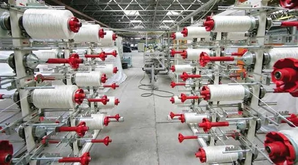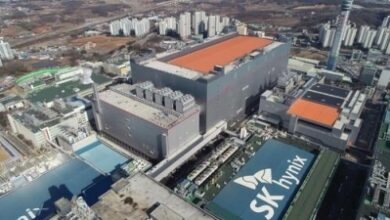Make in India is work in progress, we must become manufacturing nation: Amitabh Kant
New Delhi, Sep 27 (IANS) While the Make in India initiative has completed 10 years, it is still a work in progress and we must become a manufacturing nation, said G20 Sherpa and former NITI Aayog CEO, Amitabh Kant on Friday.
Speaking exclusively to IANS, he said that we must ensure that a minimum of 25 per cent of our GDP comes from the manufacturing sector. He also spoke on various issues ranging from digitisation, AI, health, space and more.
Here are some excerpts from the interview:
IANS: We are seeing a surge in Make in India and a rise of startups in Tier-II and III cities and even beyond them. So what sort of growth do you expect in the coming days for India?
Amitabh Kant: I think India should grow at about 7.5 per cent. And, this is a consequence of the vast amount of structural reforms that have been carried out in India. This includes the huge thrust on infrastructure that has been laid out by increasing the spending from 1 per cent to about 2 to 3.5 per cent of the GDP infrastructure and the extent of the huge amount of digitisation that has happened in the Indian economy.
There has been a formalisation of the Indian economy, but I think the Make in India initiative launched about a decade back has kicked off in a very big way.
The Startup India mission, which was launched at the same time, has also seen a lot of young entrepreneurship grow and we’ve become the third biggest nation as far as startups are concerned. The government has taken a series of measures to look at the future, namely, the AI mission, the quantum computing mission, the semiconductor mission, and the green hydrogen mission.
All these will unfold in the days to come, and they will all have a major dividend to the Indian economy.
IANS: How can states like India become Viksit Bharat? And what’s your assessment of the state’s growth rates, vis-a-vis the national growth?
Amitabh Kant: States are very critical. Without states growing, the nation will not be able to grow. So India needs about 10 to 12 champion states, which will grow at 10 per cent plus. And if they grow at 10 to 12 per cent plus then India grows. Otherwise, it will be very difficult for India to grow.
You have states that have grown for a long period like Gujarat and Tamil Nadu, but you need a whole range of new states. You need UP, Bihar and Chattisgarh. They are all mineral-rich states. But these states need to grow at 10 to 12 per cent per annum for the next three decades.
If they start growing at rapid rates then the rest of India will automatically grow. So it’s very, very critical that we make, especially the eastern part of India grow very rapidly.
IANS: How is Make in India shaping the future of the health sector in our country?
Amitabh Kant: We are the largest vaccine manufacturer in the world. We not only provided 2.2 billion Covid vaccinations during the huge calamity, but we also provided medicine to over 150 odd countries.
India is also the pharmacy of the world. And now we are increasingly emerging as a biosimilar market for the world. What India has done in the field of health is remarkable.
India’s growth has also been on account of a vast range of health service providers by not just the government, but the private sector has also played a critical role.
But if it wasn’t for India, the world would not have bought medicine at the right price. So we are the biggest generic vaccine provider in the world. We are amongst the largest vaccine manufacturers in the world. And, that demonstrates India’s credibility. It’s a great Make in India story.
IANS: India’s space sector has embraced a transformative area with the inclusion of private players. So how do you see the growth further?
Amitabh Kant: The remarkable thing is that the government of India has opened up the space sector in a very vigorous manner. You’ve seen a range of private sector, young startups entering and doing remarkably well.
They are not only launching but using the data not to build rocket launchers. They are also going to take India’s advancement in a range of areas, including satellite connectivity, and construction in a very big way forward. So space, geospatial and drones are three sectors, which India has opened up in a very big way and that can make a huge impact.
IANS: Can India become the AI capital of the world? What kind of impact do emerging technologies such as AI, and 6G make to help boost productivity?
Amitabh Kant: AI has become a foundational technology. We have huge access to data, and India has massive potential. But it’s a technology that everybody must embed.
The government as well as the private sector must use AI and become far more efficient. AI must also be utilised for education, health, and nutrition to improve outcomes in all these areas of growth.
AI has huge potential. We now need to train and skill a vast number of people to create new quality jobs in these areas. And, this can have a profound impact on India’s growth story. AI can enhance productivity, learning outcomes, and health outcomes.
However, the basic assumptions on which AI is based, should not be of conflict in societies, and therefore there is a need for a consensus on the assumptions on which the AI principles are based.
IANS: Can we overcome China in manufacturing over a period of time? Do you think that India is moving in the right direction to replace China as a global manufacturing hub?
Amitabh Kant: I don’t think we should look at replacing China. We should do our own work in a range of different areas of growth.
In the case of China, there’s massive government subsidisation, which India will find difficult to do. I think we should look at what are the other core competency areas for India.
And this competency has been in the services sector. We have now set up close to 2,000 robust capability centres in India. We will continue to grow. Our period of growth has come.
We need to grow from about a $4 trillion economy to a $30 trillion economy. We need to take the per capita income of Indians from $2,500 to $18,000. All that would require India to grow, both in services, and in manufacturing, by doing good urbanisation, and also enhancing agricultural productivity in all areas. We must grow. But we should never think of just replicating China. We should do what is good for India.
IANS: Global investment sentiment is bullish on India. How can we tap this further?
Amitabh Kant: We are getting a lot of foreign investments, from VinFast, Apple, and Micron. All these have come to India, and many more will come. We should just continue to be easy and simple. We should make things as easy and as simple as possible, and we should see that there are no huge regulatory burdens. We should ensure that we continue to invite FDI. We should continue to be investor-friendly as much as possible. And that’s the way for India to grow.
IANS: The Indian EV sector is booming. What are your thoughts on that?
Amitabh Kant: The EV sector is doing well with young Indian companies, and startups all doing well. But we need to ensure that we do that to manufacturing in India, for which the pilot scheme was announced.
There’s a production-linked incentive scheme for both automobiles and manufacturing. And, I think, we should keep pushing for that. We should become the EV capital of India. The world is going to move towards that area. We should be able to move back to manufacturing.
IANS: Rural private consumption is at a record high. So how this growth can be put into top gear?
Amitabh Kant: Private consumption has been given a thrust through Capex expenditure, a whole range of government schemes, which provide welfare to the people. But it’s very important to make the people living in rural areas very active participants in our economy.
That would require us to do training and make them skilled so that they get better quality jobs in the future. They become a very productive participant in the growth and progress of the Indian economy.
IANS: What are the progress and possibilities in the defence manufacturing sector under the Make in India programme?
Amitabh Kant: There’s a huge possibility as the defence sector has been liberalised. Not only are we manufacturing in India, but we are also exporting from India to the rest of the world.
So defence has a massive potential in India. We used to import a lot which has come down. We have very big manufacturers like Tatas, LMT, Mahindra, and many other companies who are manufacturing in the defence sector. And I think defence is one area where we have the best potential to export and capture the market across the world.
IANS: How can we become a $10 trillion economy?
Amitabh Kant: We should be able to be a $30 trillion economy by 2047. That means that India has grown eight times in the next 20 years. That’s the challenge for India.
IANS: If freebies are putting a big pressure on the treasury, which as a result affects the big-ticket infrastructure projects. So what could be the way out?
Amitabh Kant: Some freebies you need to give because you are living in a country where you need to take care of all segments of the population, but it should not be just a freebie economy.
We must raise production, we raise productivity, we raise growth, and we ensure that the private sector also invests in the Indian economy. Growth is important, but welfare is also important.
IANS: What do you want to sum up about the whole Make in India initiative?
Amitabh Kant: It is focused on ease of doing business, and opening up the foreign direct investment regime, the patent and trademark regime.
We’ve also brought in the production-linked incentive scheme. It also led to the thriving of the Startup India movement.
But this is still a work in progress. We need to ensure that Make in India leads to manufacturing in India, and a manufacturing nation with a minimum of 25 per cent of our GDP coming from the manufacturing sector.
–IANS
rvt/uk




